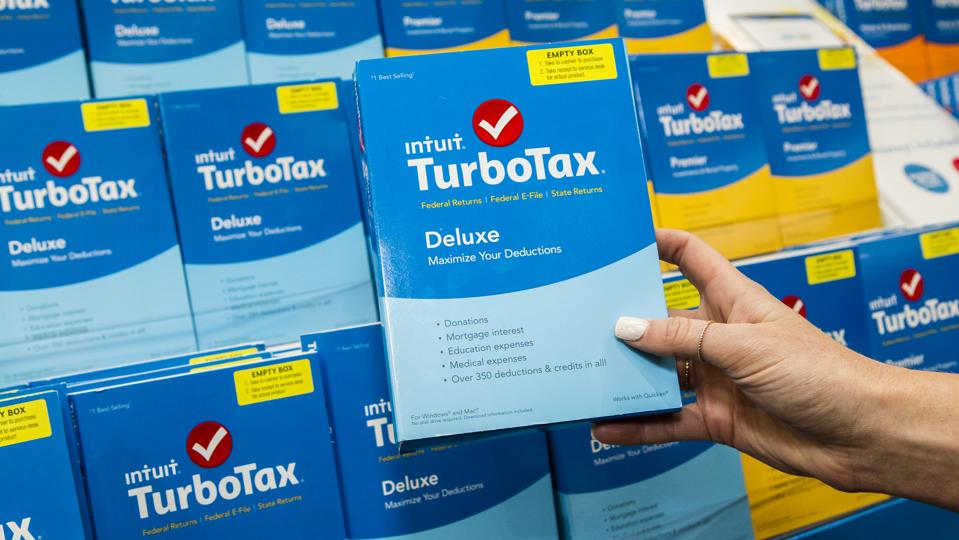Topline
After a three-month delay sparked by antitrust concerns, TurboTax-developer Intuit has received approval from the Department of Justice to move forward with its $7.1 billion takeover offer for fintech giant Credit Karma after they agreed to divest Credit Karma’s tax business to Square.
TurboTax products sit on display at Costco.
getty
Key Facts
The DOJ filed a civil antitrust lawsuit in U.S. District Court on Wednesday to block Intuit’s acquisition of Credit Karma as well as a proposed settlement requiring the sale of Credit Karma Tax to Square for $50 million.
According to the suit, Credit Karma’s free tax services have created competition in the online tax preparation market that’s helped constrain TurboTax’s tiered pricing model and encouraged Intuit to improve its offerings.
Without Credit Karma divesting its tax business, the acquisition “would eliminate competition, likely resulting in higher prices, lower quality, and less choice for consumers of digital-do-it-yourself tax preparation products,” the DOJ said Wednesday.
Under the terms of the agreed-upon settlement, Square will acquire Credit Karma Tax’s assets, including software and intellectual property, which it will then integrate into its Cash App platform.
Shares of Intuit were up nearly 2% after the announcement, boosting year-to-date gains to roughly 32%, while Square shares, which have more than tripled this year, climbed 4%.
Crucial Quote
“Intuit’s TurboTax has long led the market for digital do-it-yourself tax filing services, but disruptive competition from Credit Karma Tax has brought substantial benefits to American taxpayers,” DOJ Assistant Attorney General Makan Delrahim said in a statement. “Today’s divestiture to Square, another highly successful and disruptive fintech company, ensures that taxpayers will continue to both benefit from this competition and benefit from new innovative financial service offerings from both Intuit and Square.”
Key Background
Intuit announced its intent to acquire Credit Karma in February, and experts almost immediately began scrutinizing the transaction over antitrust concerns. “Allowing a near-monopolist to eliminate a maverick competitor poses obvious risks of harm,” one former DOJ lawyer told Politico. TurboTax, which offers a free option for only the most basic tax returns and tiered pricing for commonly needed services, enjoys a more-than two-thirds share of the online market for tax preparation, but since its debut four years ago, Credit Karma Tax helped lure customers away with its always-free services, becoming the fifth-largest digital do-it-yourself tax preparer. The DOJ officially stepped in to review the acquisition in August after senators urged it to do so.
Big Number
41 million. That’s approximately how many people filed individual federal tax returns this year using TurboTax, the largest player in the space by far. By comparison, Credit Karma Tax had 2 million filers.
Tangent
With more than 100 million users, Credit Karma, the original free credit monitoring and credit score service, has been a staple on Forbes’ Fintech 50 list.
Further Reading
The Future Of Personal Finance: Fintech 50 2020 (Forbes)
